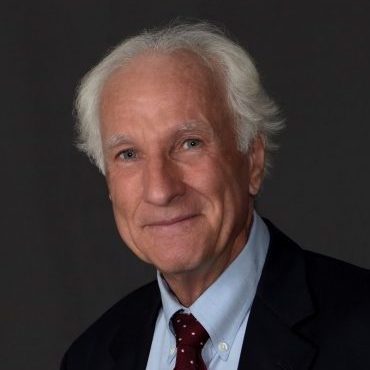“The Administration has recently gone through a very rough patch with high level initiatives rejected by the courts and Congress. Hopefully, they aren’t so shell shocked as to jump on board a theory that’s sunk more times than the Titanic.”
 Some say the definition of insanity is doing the same thing over and over while expecting a different outcome. That would appear to be the case with the recent refiling of a petition by Knowledge Ecology International (KEI) to the National Institutes of Health (NIH) asking it to march in under the Bayh-Dole Act to force licensing to additional parties of the prostate cancer drug Xtandi, because of its cost. The law allows academic institutions, companies and federal laboratories to own and license inventions made with government support.
Some say the definition of insanity is doing the same thing over and over while expecting a different outcome. That would appear to be the case with the recent refiling of a petition by Knowledge Ecology International (KEI) to the National Institutes of Health (NIH) asking it to march in under the Bayh-Dole Act to force licensing to additional parties of the prostate cancer drug Xtandi, because of its cost. The law allows academic institutions, companies and federal laboratories to own and license inventions made with government support.
Similar petitions were rejected by NIH and the Department of Defense (which funded the research on the underlying invention) in the Obama/Biden Administration for a simple reason: the law is for the commercialization of federally funded inventions; it does not allow the government to set prices for successful products.
KEI hyped their action at a December 15, 2021, press event. This might seem like an exercise in futility, as the law hasn’t changed and their theory has been uniformly rejected, most often in the Obama/Biden Administration. But those peddling this theory see a political opening to refloat their leaky vessel— a new Director of the NIH will soon be nominated, so the confirmation hearing will be used to browbeat the Biden Administration into jumping on board what’s alleged to be an easy way to control drug prices. The Administration has recently gone through a very rough patch, with high level initiatives rejected by the courts and Congress. Hopefully, they aren’t so shell shocked as to jump on board a theory that’s sunk more times than the Titanic.
A Refresher
The Bayh-Dole Act provides that federal agencies can “march in,” requiring those owning federally funded inventions to license others under four specific circumstances:
- The action is necessary because the patent owner hasn’t taken steps in a reasonable time to achieve practical application of the invention.
- The action is necessary because the patent owner or licensee can’t “alleviate health or safety needs” of the public.
- The action is necessary because the patent owner or the licensee can’t meet the requirements of federal regulations; or
- The action is necessary because the patent owner or licensee has violated their pledge to make resulting products substantially in the U.S.
Twenty years after enactment, opponents of the law claimed they’d found a hidden meaning in the statute allowing the government to march in if someone doesn’t like the price of a resulting product. They cited the requirement that federal agencies must license other parties when marching in “upon terms that are reasonable.” That claim fell apart as the language clearly refers to licensing terms, not how the product is being sold.
They fell back on a definition used in the first march-in trigger, where the term “practical application” is defined as meaning that the invention is being made available to the public “on reasonable terms.” Thus, they assert, the government can march in if a price isn’t “reasonable.” Despite having no justification in the law or its legislative history, KEI has filed numerous petitions on that basis. But a careful reading of the law shows their theory doesn’t hold water.
Unlike the other triggers, the first only applies to the patent owner, not the licensee. Under Bayh-Dole, patent owners are normally academic institutions. They don’t make products or set prices for their licensees, so the language can’t apply to how the product is sold. Rather, the language means that the terms of the license must be reasonable.
Such a provision may seem odd today, but in 1980 when the law was enacted, very few universities had tech transfer offices. In passing Bayh-Dole, Congress wanted to ensure that inexperienced universities didn’t inhibit commercialization through unreasonable licensing terms. It also wanted to make sure that academic institutions were tracking the licensees’ commercialization efforts. Bayh-Dole drew upon the long history of march in rights under previous administrative patent policies dating back to the Truman Administration. Similar terms had been used to ensure that good faith efforts were being made to develop a federally funded invention—not for having the government set prices on successfully commercialized products.
March-In Rejection Has Been Bipartisan
That’s why every Democratic and Republican Administration has rejected each price control petition they’ve received. It’s illuminating to review how the Obama/Biden Administration handled the previous attempts to march in on Xtandi. Here’s part of what NIH Director Francis Collins wrote on June 20, 2016:
As set forth in NIH’s prior march-in determinations (1997 Cell Pro; 2004 and 2013 Norvir®; 2004 Xalatan®, see www.ott.nih.gov/policies-reports), practical application is evidenced by the “manufacture, practice, and operation” of the invention and the invention’s “availability to and use by the public…” Xtandi® is broadly available as a prescription drug. Your letter states that sales of enzalutamide [Xtandi] increased 77% from Fiscal Year 2013 to Fiscal Year 2014 and are projected to increase 51% from Fiscal Year 2014 to Fiscal Year 2015… however, it provides no information and no information was identified from public sources to suggest that enzalumatide is currently or will be in short supply.
In view of the above information presented in your letter and your follow-up correspondence and public information identified by the NIH, we decline to proceed with government’s march-in authorities at this time or utilize the government’s license to the patents.
The Department of Defense was more succinct. Here’s their bottom line:
Your letter and supporting material show that Xtandi® has achieved practical application as the DHHS and DOD understand that term. Your request does not disclose information suggesting that supplies of Xtandi® are running low or that health or safety needs are not being met by the manufacturer. In view of the above information, we decline to exercise the government’s march-in authorities or utilize the government’s license to the enzalutamide patents.
KEI appealed NIH’s decision to the Secretary of the Department of Health and Human Services, Sylvia Burwell, and received the following denial from NIH Director Collins:
In the June 20, 2016, response to the first KEI request for NIH and the Army to use their march-in authorities or government use licenses, KEI explained that Xtandi® is widely available on the market, its sales have increased since it became available by more than ten percent (10%) each year, and there have been no public reports that Xtandi® is in short supply or is not being prescribed or used because of its price.
A public statement by Astellas [manufacturer of Xtandi] on March 29, 2016, indicated that during 2015, Astellas provided Xtandi® for free under the Astellas Access Program to eligible patients who did not have insurance or were underinsured and have an annual adjusted household income of $100,000 or less. Astellas also reported that, in 2015, over 2,000 men fighting advanced prostate cancer received Xtandi® for free.
Based on the information we reviewed last year, and again in response to this current request, NIH declines to initiate a march-in investigation or to utilize the government’s license in the patents. NIH is sensitive to the impact of pricing on access to Xtandi by patients and continues to believe the broader issue of drug pricing would be most appropriately addressed through legislative channels to develop remedies that have implications for the cost of healthcare overall. [emphasis added].
Drug Pricing is a U.S. Healthcare Issue
The last point is the key: the Bayh-Dole Act is not intended to address the costs of our healthcare system. Attempts to do so are misguided and can only undermine the development of critically needed discoveries, while doing nothing to solve the underlying issues.
But there’s one new item in the recent march in petition — KEI cites the Bayh-Dole Coalition (which I lead) as the main obstacle standing in their way.
That made my day.
Note: IPWatchdog is also a member of the Bayh-Dole Coalition.
Image Source: Deposit Photos
Image ID:10257515
Copyright:maninblack

![[IPWatchdog Logo]](https://ipwatchdog.com/wp-content/themes/IPWatchdog%20-%202023/assets/images/temp/logo-small@2x.png)

![[Advertisement]](https://ipwatchdog.com/wp-content/uploads/2024/04/Patent-Litigation-Masters-2024-sidebar-early-bird-ends-Apr-21-last-chance-700x500-1.jpg)

![[Advertisement]](https://ipwatchdog.com/wp-content/uploads/2021/12/WEBINAR-336-x-280-px.png)
![[Advertisement]](https://ipwatchdog.com/wp-content/uploads/2021/12/2021-Patent-Practice-on-Demand-recorded-Feb-2021-336-x-280.jpg)
![[Advertisement]](https://ipwatchdog.com/wp-content/uploads/2021/12/Ad-4-The-Invent-Patent-System™.png)







Join the Discussion
5 comments so far.
James Love
February 12, 2022 09:20 amIf readers want to know more about the case, we have updates and links to documents here: https://www.keionline.org/xtandi2021
Anon
January 18, 2022 08:12 pmI have to chuckle at something else ‘not that clever:’
Professing not to read a particular person’s patent blog posts, and then twice in very short order using very particular phrases that THAT person (and no one else) has used.
But those “who use their real name” don’t worry about credibility because after all, they use their real name, eh?
Anon
January 18, 2022 08:06 pmNot sure who coins your idioms, but more times than the titanic is an aweful(ly) low bar.
Dozens
January 18, 2022 07:17 pmSome say the definition of insanity is doing the same thing over and over while expecting a different outcome. That would appear to be the case with the recent refiling of a petition by Knowledge Ecology International (KEI) to the National Institutes of Health (NIH) asking it to march in under the Bayh-Dole Act to force licensing to additional parties of the prostate cancer drug Xtandi… KEI hyped their action at a December 15, 2021, press event. This might seem like an exercise in futility, as the law hasn’t changed and their theory has been uniformly rejected, most often in the Obama/Biden Administration.
In the immortal words of Forest Gump, “stupid is as stupid does.” The folks running this publicity campaign are not exactly a brain trust. The genuinely clever would not be interested in working for an outfit like KEI in the first place. If their actions seem stupid, that is because they are the brain children of the not-that-clever.
Niels Reimers
January 18, 2022 06:37 pmMr. Allen,
Another excellent article, right on target. Does KEI wish to discourage companies from investing in development of an academic research finding with potential (not a guarantee by along shot!) for a life saving medicine? That would be the outcome of their actions,